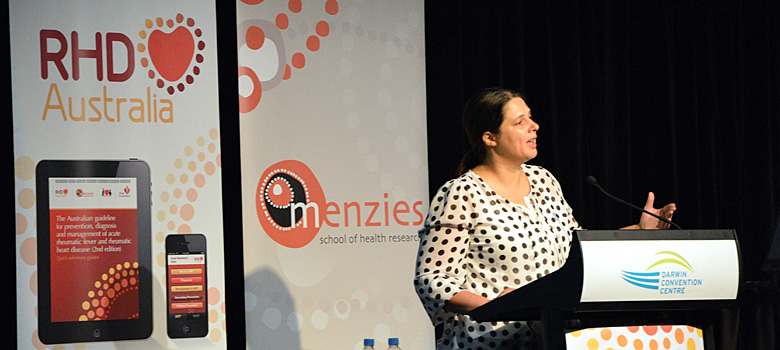Experts from around the country met in Darwin recently at a conference to strengthen Australia’s fight to prevent rheumatic heart disease (RHD).
The conference brought together experts, health workers, researchers and government policy makers to draw on their knowledge and innovation to reveal what can be done to reduce the appallingly high rate of RHD in Australia.
RHD is the most common form of heart disease in children, with Australia having the highest record of it in the world; the majority of reported cases in are in Indigenous children aged five to 14 years who live in the Northern Territory.
One expert attending the conference was leading paediatric cardiologist, Dr Bo Remenyi, who emphasised the need to prevent RHD in Indigenous children to prevent the unnecessary condition and allow them to live a fulfilling life.
She spoke of cases of a three-year-old Indigenous boy diagnosed with Acute Rheumatic Fever (ARF) who required his first cardiac surgery at the age of eight.
“The boy had his second heart operation when he was nine, and a third when he was 15 years old for a double heart valve replacement,” Dr Remenyi said.
“The sad thing is that we could have treated this boy before his heart valves were damaged and prevented the need for heart surgery if he had received 100 per cent of his penicillin injections.
“This boy now has a 50 per cent chance of suffering a stroke or dying before he reaches 30 years of age.”
She then went on to explain that the boy is now required to take blood thinning medication daily to avoid a stroke as well as endure painful penicillin injections once a month to avoid further recurrence of ARF.
Data collection shows a nine per cent reduction per year in the Northern Territory for ARF recurrence rates, which is a small but important step towards reducing the burden of RHD.
“Health workers can ensure that people diagnosed with ARF have a good chance of survival if they receive 100 per cent of their penicillin injections,” Dr Remenyi said.
The Menzies School of Health Research, in partnership with Indigenous communities, is currently developing innovative ways of optimising adherence to penicillin injections.
Another expert at the conference was esteemed paediatrician and Indigenous child health expert, Professor Jonathan Carapetis. He says that the rates at which the Indigenous have the disease are “shameful” in a first world country.
“Aboriginal people die of the disease 300-plus times as frequently as non-Aboriginal people,” he says.
“The prevalence of the disease in Australia is shameful as it is considered internationally as a disease affecting developing countries.
“The Australian and New Zealand governments have recently partnered to try and fast-track the development of a rheumatic fever vaccine.”
The vaccine is twenty years in the making; J8-DT began trials in Australian adults earlier this year. It is designed to protect against multiple strains of Group A Streptococcus (GAS) bacterium; the infection that causes acute rheumatic fever.
Although promising, the vaccine may not be available for 5-10 years.
The facts on RHD:
RHD is a disease categorised by permanent damage to the heart following a bout of acute rheumatic fever (ARF) – a condition caused by Group A Streptococcus (GAS) bacterium (‘strep throat’) that can cause the heart to inflame and leave permanent damage, specifically the heart valves.
Stopping episodes of recurrent ARF can prevent rheumatic heart disease. Once a person has had ARF, there is a high chance they will get it again unless they have preventative penicillin injections every 28 days.
Although not all cases show symptoms, when they do, RHD symptoms include:
• Chest pain
• Heart palpitations
• Breathlessness on exertion
• Breathing problems when lying down
• Waking from sleep with the need to sit or stand up
• Swelling
• Fainting
The central goal in the long-term management of RHD is to prevent ARF recurrences, and prevent the progression of RHD, and in many cases allow for the resolution of heart disease.

Comments are closed.